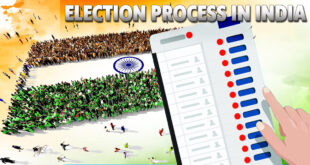It’s highly unlikely that Iran will give up its forward defence doctrine in the wake of U.S. sanctions
On November 5, nearly six months after the U.S. pulled out of the multilateral Iran nuclear deal, all the American sanctions that had been in place before the 2015 agreement were reimposed on the Islamic Republic. When President Donald Trump announced that the U.S. was withdrawing from the accord, despite international certification that Iran was fully complying with the terms of the agreement, he had said that the other signatories of the accord as well as Iran’s trading partners would be given upto 180 days to wind down their businesses in Iran before severing trade ties with the country. The new sanctions will target almost all of Iran’s vital business sectors: energy, shipbuilding, shipping and banking. Within two years of his presidency, Mr. Trump has effectively taken the U.S.-Iran relations to the pre-Obama era of hostility by reversing a signature diplomatic achievement of the former President. This is not surprising given that Mr. Trump had attacked the Iran deal throughout his presidential campaign. In the words of Steve Bannon, his former adviser, one of the objectives of the administration’s “Middle East initiative” is “to roll back the Persians”. Mr. Trump is trying to do this by squeezing Iran’s economy and mounting pressure on its rulers.
Not a very popular deal
The Iran nuclear deal has never been popular among the conservative sections of the Washington establishment. Nor has it been with the U.S.’s key allies in West Asia — Israel and Saudi Arabia — who believe that the nuclear deal has done nothing to curtail Iran’s regional interventions. They worry that the deal, which limits Iran’s nuclear programme in return for the lifting of international sanctions, will make Iran economically more powerful, putting it in a better position to continue its “subversive tactics” in the region. They also say that the 30% rise in Iran’s defence spend in 2016, immediately after the deal, is an indicator of its aggressive behaviour. Interestingly, this time the U.S. is not talking about regime change, but “behaviour change” of the regime instead. To be sure, there’s a tactical calculus in Mr. Trump’s move. By pulling the U.S. out of the deal, his administration has put Iran in a catch-22 situation. For now, Iran and the other signatories of the deal (the U.K., Germany, France, Russia, China and the EU) have stated that they will continue with the agreement. But despite these promises, it won’t be easy for these countries to trade with Iran bypassing U.S. sanctions. European companies such as France’s Total, Italy’s ENI and Germany’s Daimler have already announced plans to pull back from projects in Iran. The dilemma that Iran faces is this: it will suffer economically even if European governments stick to the agreement, but if it withdraws from the deal in protest and resumes its nuclear programme, that would only prove the Americans right and unite the West against Tehran. Another factor that is in Iran’s favour is the lack of unity in its rival camp. The Saudi blockade on Qatar has already divided the Gulf countries. Turkey, an American ally and a member of the NATO, has gradually moved closer to Iran and Russia in recent years and the three countries are now cooperating in stabilising Syria. More important, the murder of Saudi Arabian journalist Jamal Khashoggi inside the Kingdom’s consulate in Istanbul has weakened Riyadh diplomatically and thrown a spanner into Crown Prince Mohammed bin Salman’s plan (with American backing) to create an “Arab NATO” to counter Iranian influence. Iran would likely exploit these crises within its rival camp by strengthening its own regional activism, particularly at a time when the U.S. is turning hostile. If Mr. Trump wants peace in the region, he should have used the channels opened by the nuclear deal and taken steps to address Iran’s security concerns in return for limiting its regional activities. But like most of his predecessors, he wants to “roll back the Persians”. His predecessors lost the game. It is to be seen whether Mr. Trump will succeed or follow suit.
Source : https://www.thehindu.com/todays-paper/tp-opinion/can-trump-roll-back-the-persians/article25471387.ece
Check Also
The Transplantation of Human Organs and Tissues Act (THOTA)
Concept The Transplantation of Human Organs and Tissues Act (THOTA) was enacted in India in …
 Chinmaya IAS Academy – Current Affairs Chinmaya IAS Academy – Current Affairs
Chinmaya IAS Academy – Current Affairs Chinmaya IAS Academy – Current Affairs



